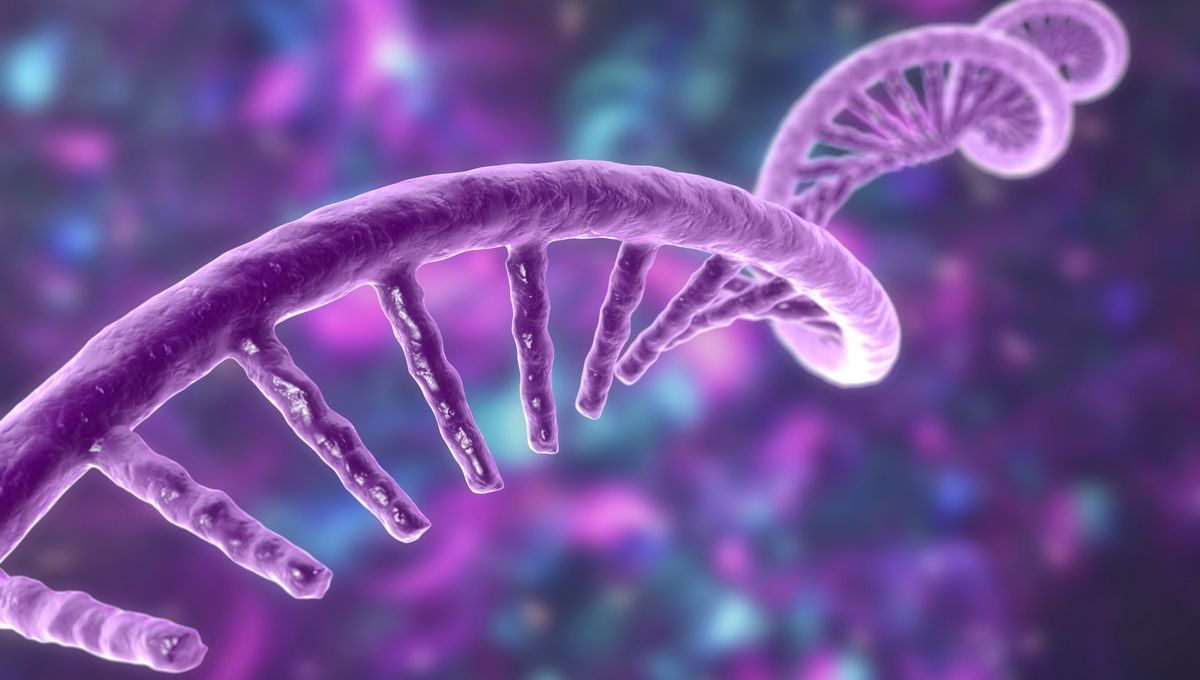
Although messenger RNA (mRNA) vaccines had been in research and development for many years, the search for a vaccine against SARS-CoV-2 brought them to the forefront. However, alongside the approval of mRNA vaccines against the virus came a slew of misinformation about their capabilities – namely, the claim that mRNA in the vaccines could alter the DNA in our cells.
Whilst it’s arguably pretty natural to have concerns in the face of something new, in this case, the science is clear – mRNA cannot change the DNA of a cell. In fact, it can’t even enter the region where DNA is stored in the first place.
What is mRNA?
mRNA is something of a middleman – it’s a small, single-stranded molecule that carries instructions from our DNA that tell the machinery in our cells, known as the ribosomes, what protein to make and how to make it. The long and double-stranded DNA stays safely tucked away in the nucleus, the cellular home of our genetic material.
Normally, mRNA is produced in the nucleus in a process called transcription, but in the case of mRNA vaccines, it enters cells within a lipid-based protective bubble. Once that bubble is stripped away, the mRNA within is used as an instruction manual for cooking up proteins in the same way that mRNA from any other source would be.
Can it change my DNA?
The simple answer to whether mRNA can alter your DNA is no, but if you’re looking for a more detailed explanation, there are several reasons as to why. Remember when we said that the nucleus is DNA’s cellular home? Well, think of that home as less of a cozy country cottage and more like Fort Knox; entry and exit are controlled on a military-esque level, and you’re only allowed in and out with express permission. mRNA doesn’t have the molecular equivalent of a visitor’s pass, even if it was made within the nucleus – once it’s out, it’s out.
Even if it were able to pull a Mission Impossible and get into the nucleus, it would soon find itself without a job. “[I]t’s RNA, it’s not DNA; it’s a different language,” said Paul Offit from the Vaccine Education Center at Children’s Hospital of Philadelphia. To have a chance of altering DNA, mRNA would first need to change “languages” and become DNA, a process known as reverse transcription. This requires a catalyst, the enzyme reverse transcriptase, which it simply doesn’t have.
Again, for argument’s sake, if reverse transcription wasn’t a problem, mRNA would still fall at the final hurdle. As Offit explained: “Even if it were reversed transcribed to DNA, which it’s not because it can’t be, it would still need to integrate into the DNA with an enzyme called integrase, which it also doesn’t have.”
Then there’s the matter of mRNA’s longevity, or rather, lack of it. Even if all of the above wasn’t a problem and it could enter the nucleus, it probably wouldn’t even get the chance – mRNAs are quickly targeted for destruction by the cell. This means that the mRNA in COVID vaccines, for example, isn’t going to hang around in your body – it’s like a recipe that says, “destroy after reading”.
In other words, mRNA simply can’t change your DNA – it’s not one to go against the rules of biology.
All “explainer” articles are confirmed by fact checkers to be correct at time of publishing. Text, images, and links may be edited, removed, or added to at a later date to keep information current.
Source Link: mRNA Can't Change The DNA In Our Cells – Here's Why